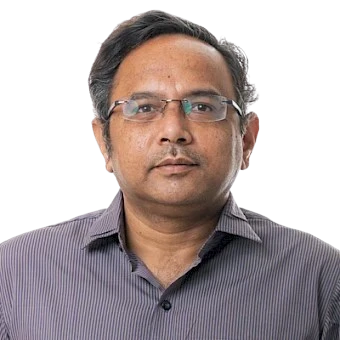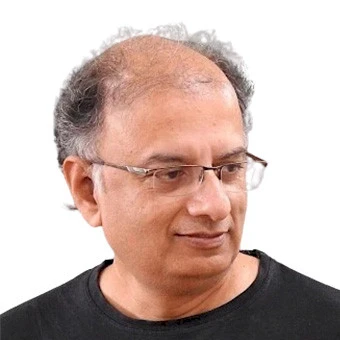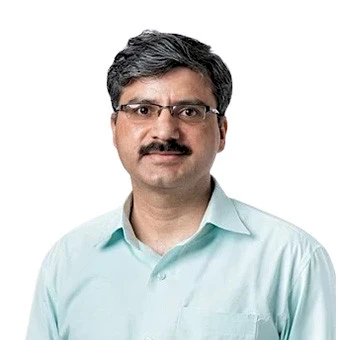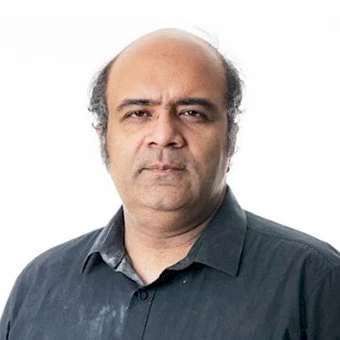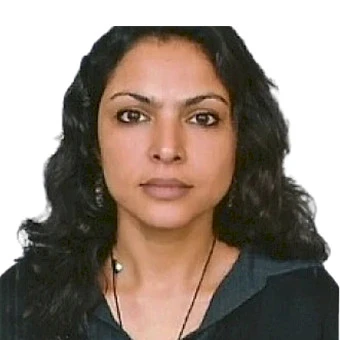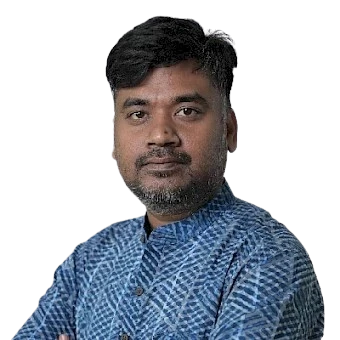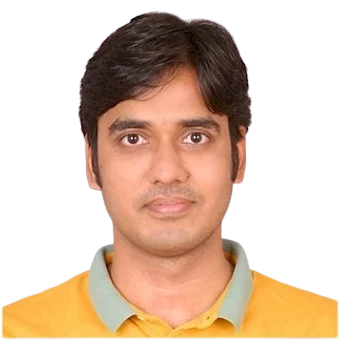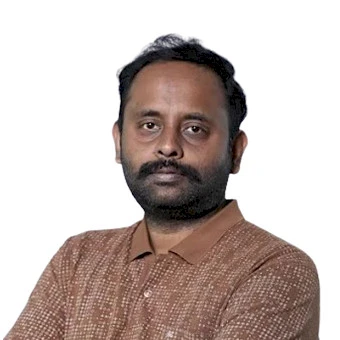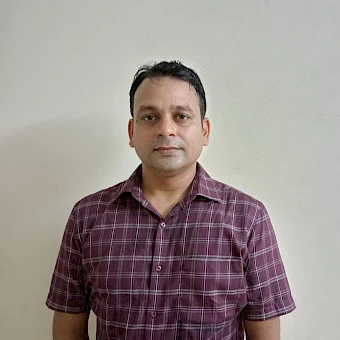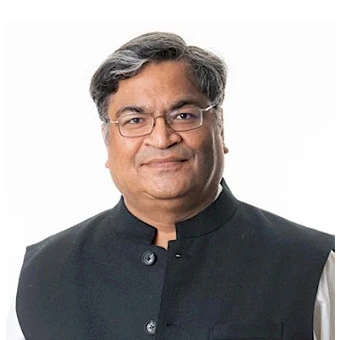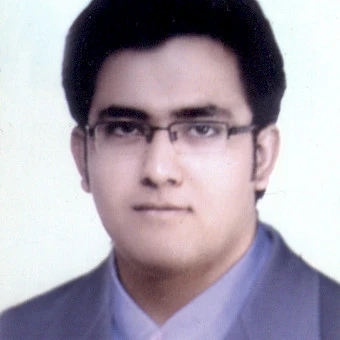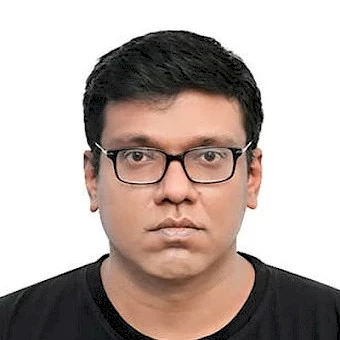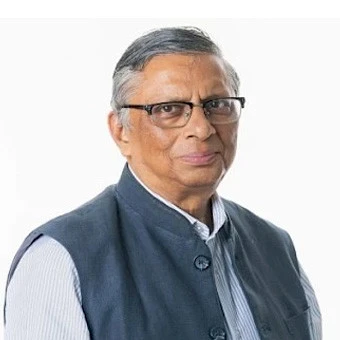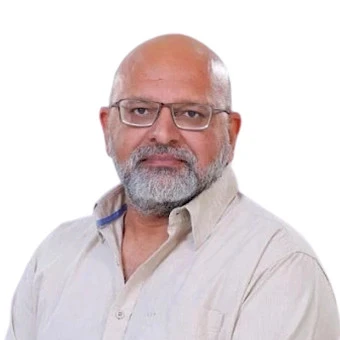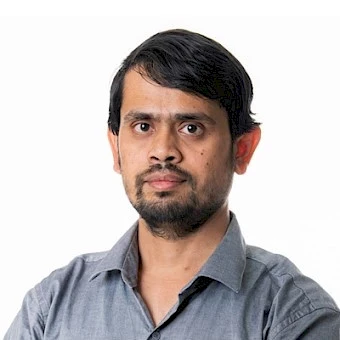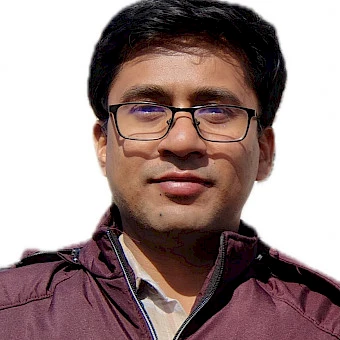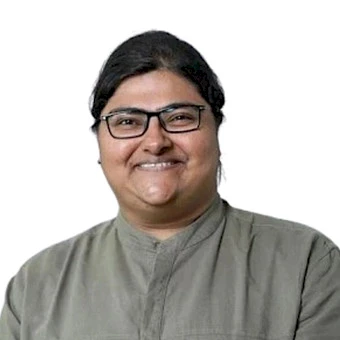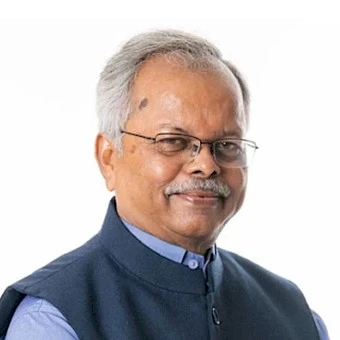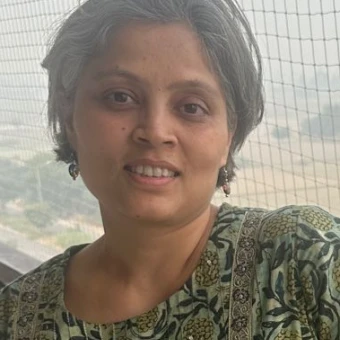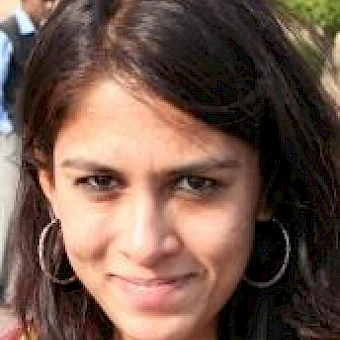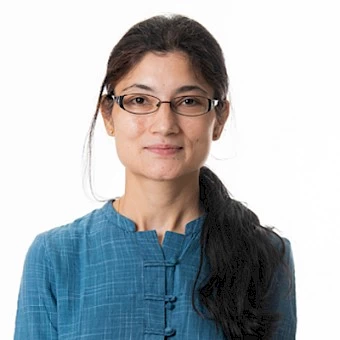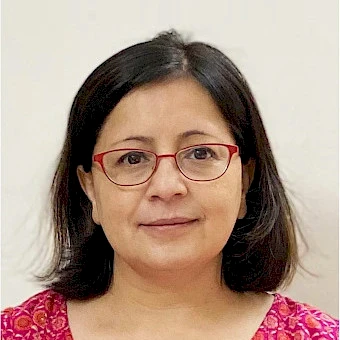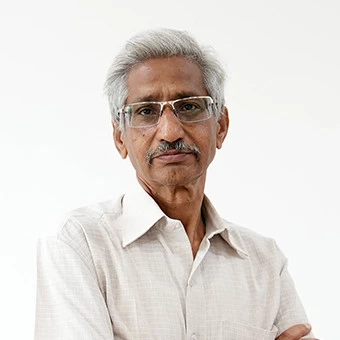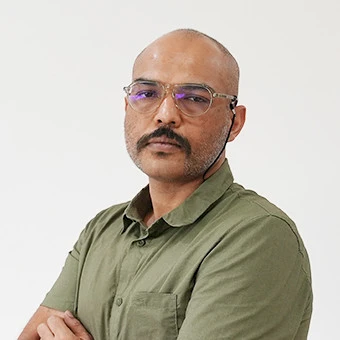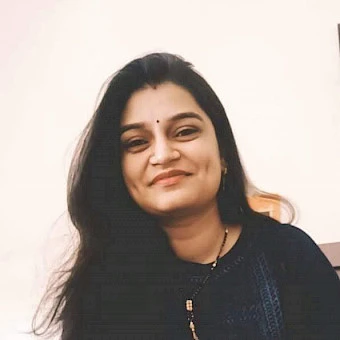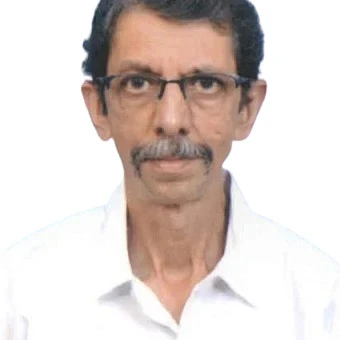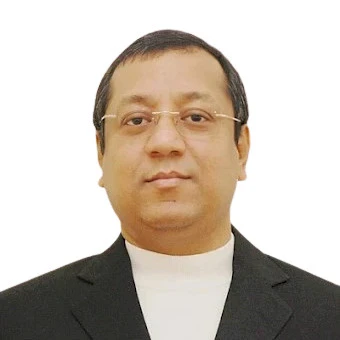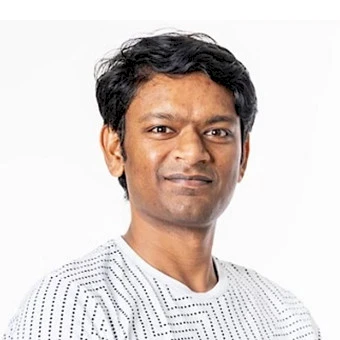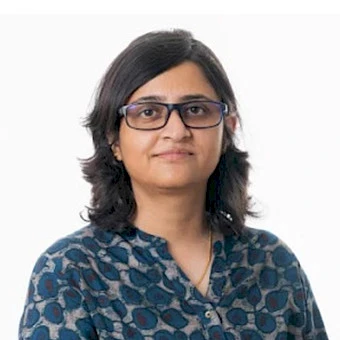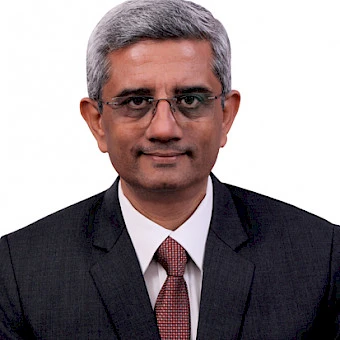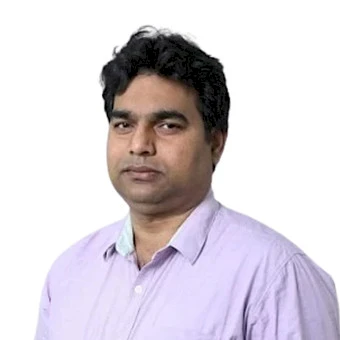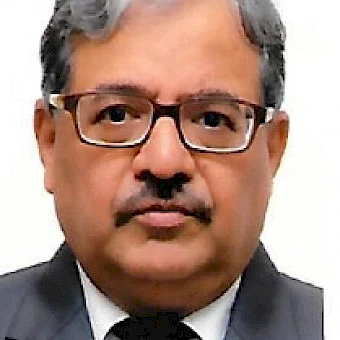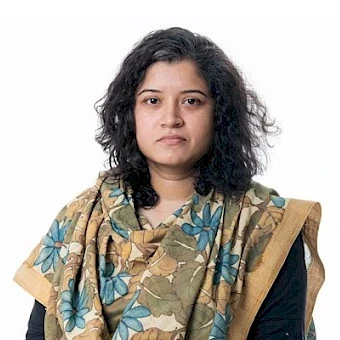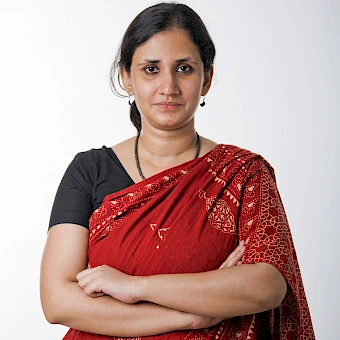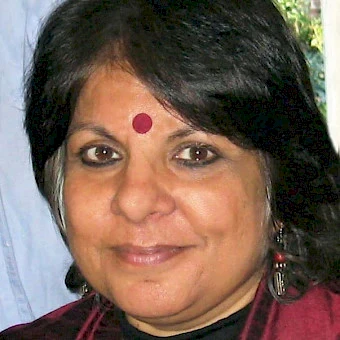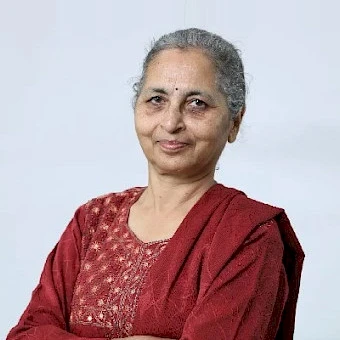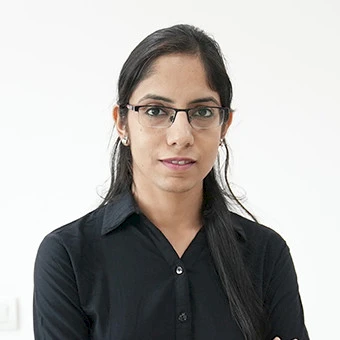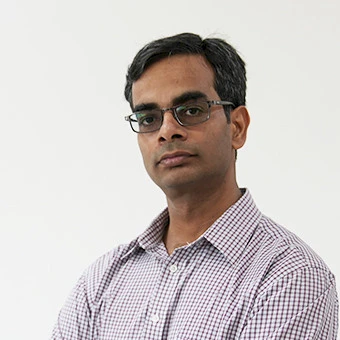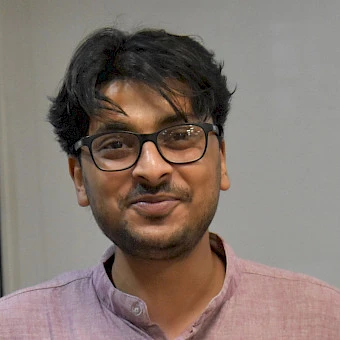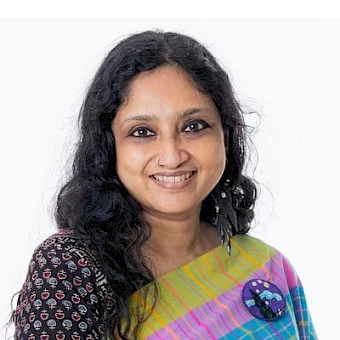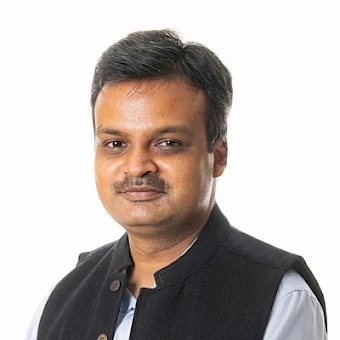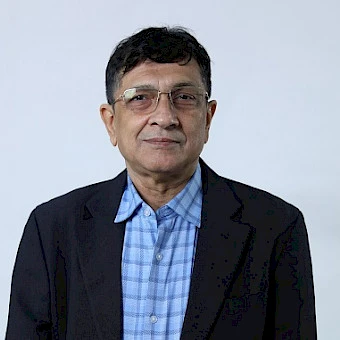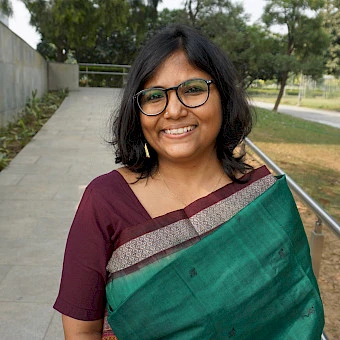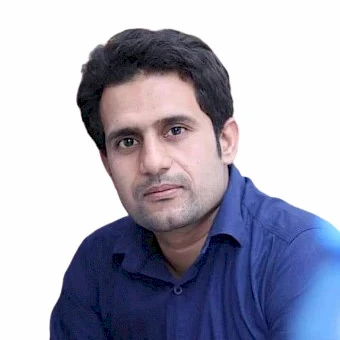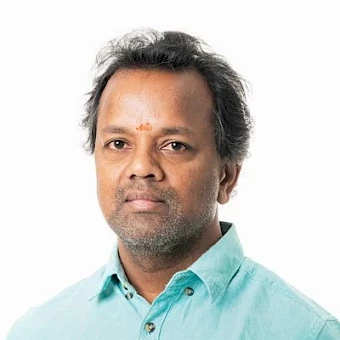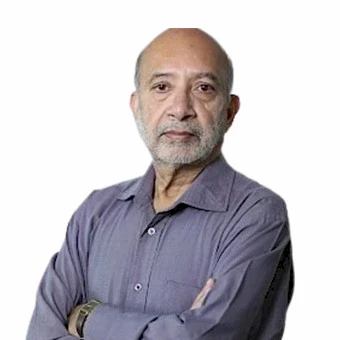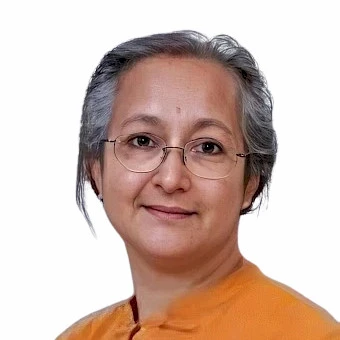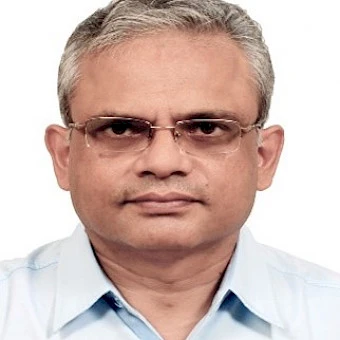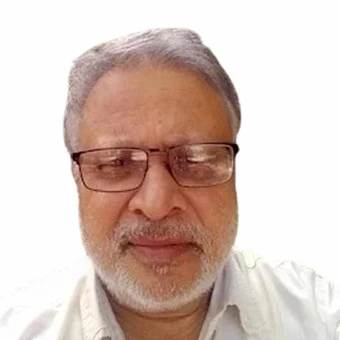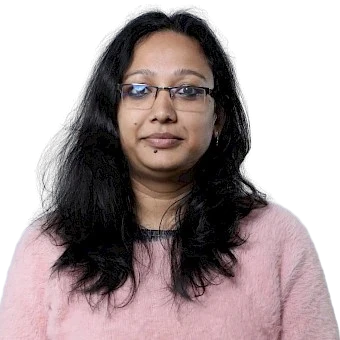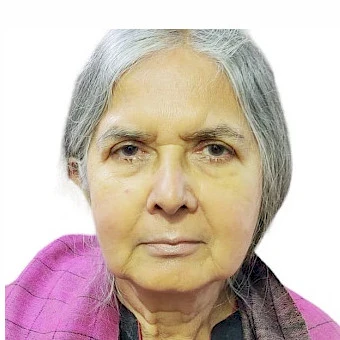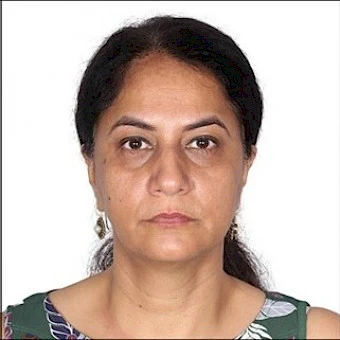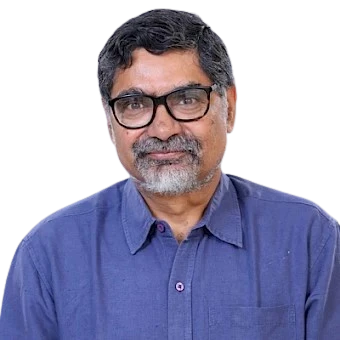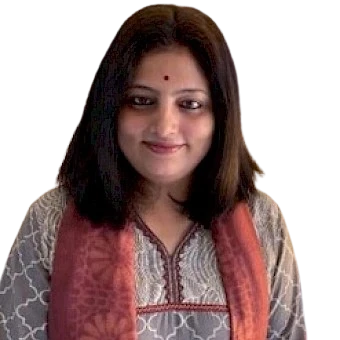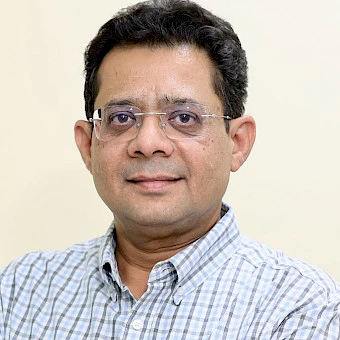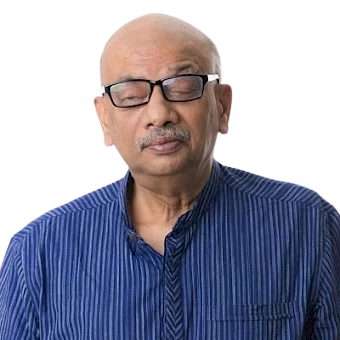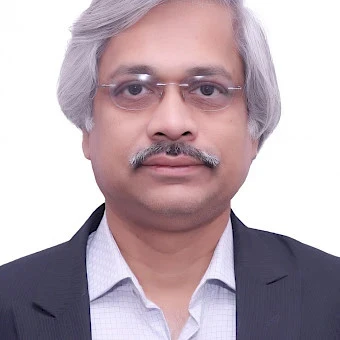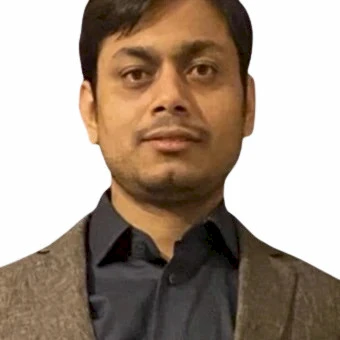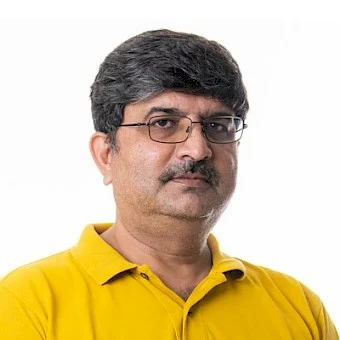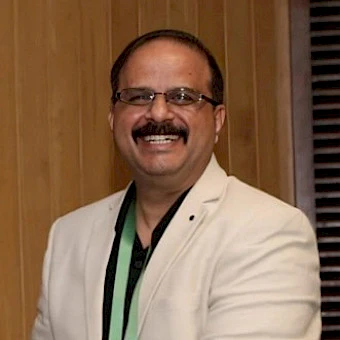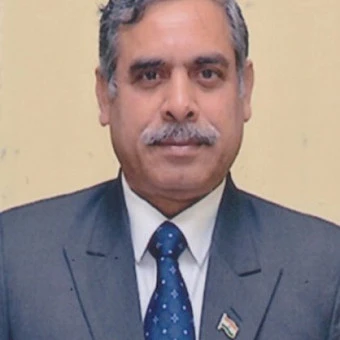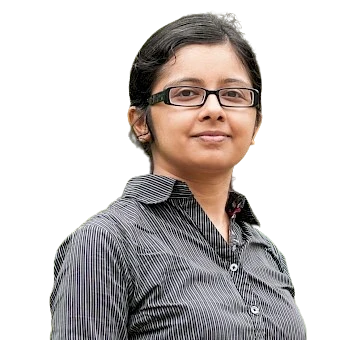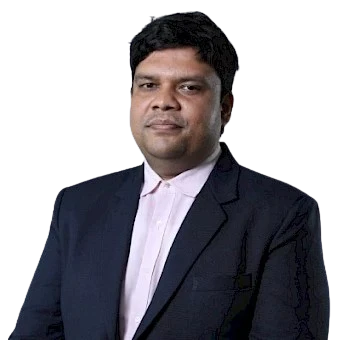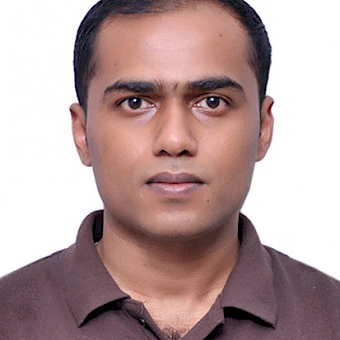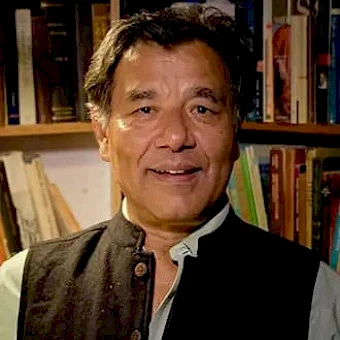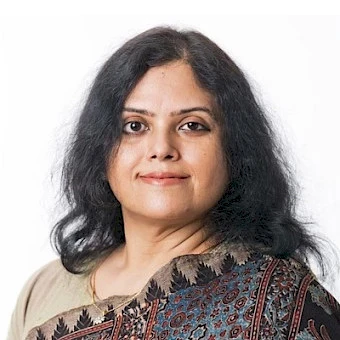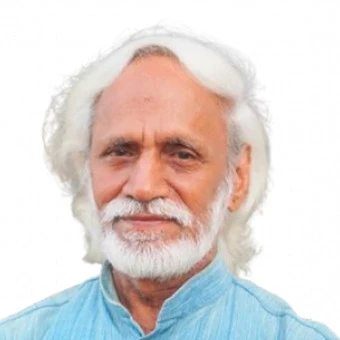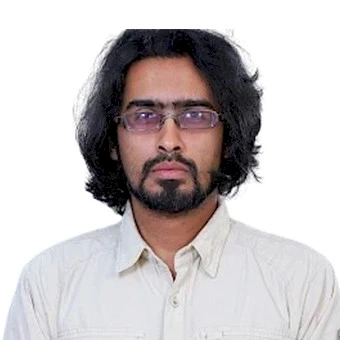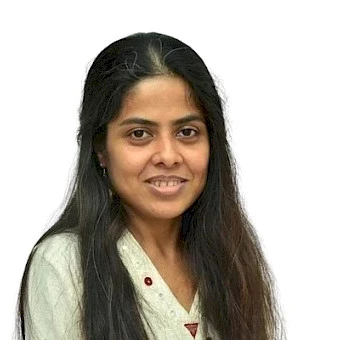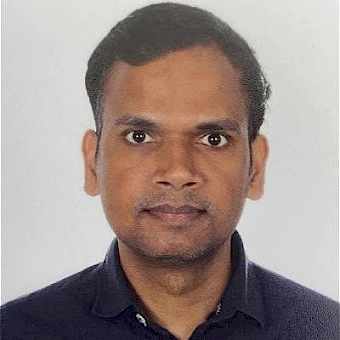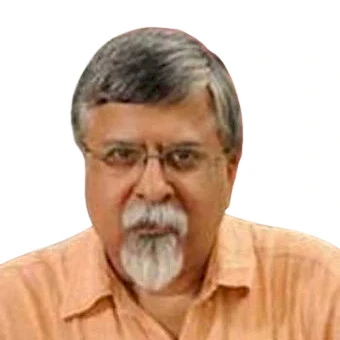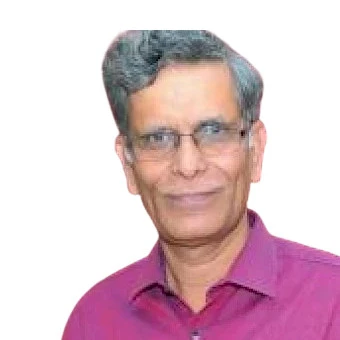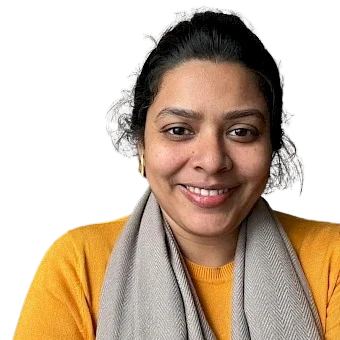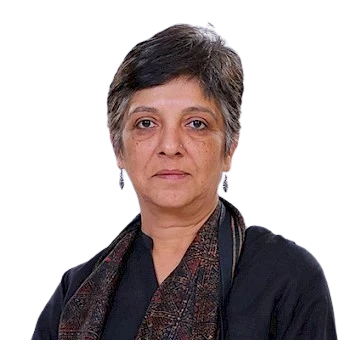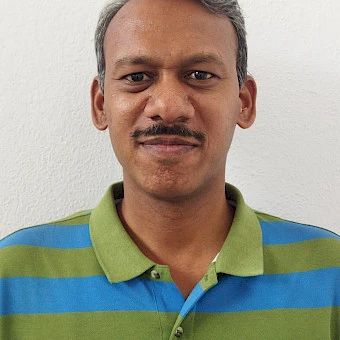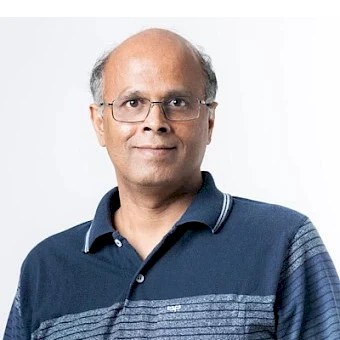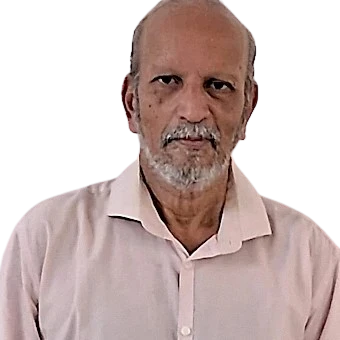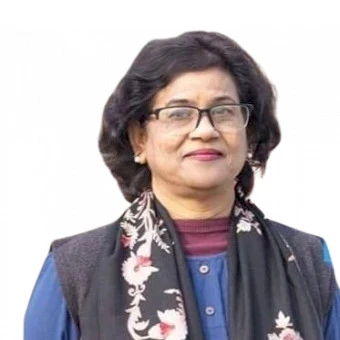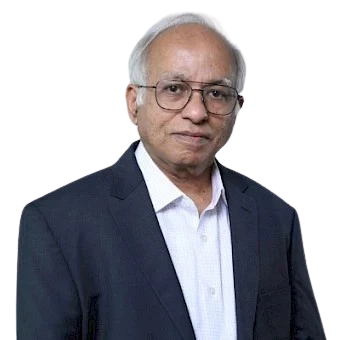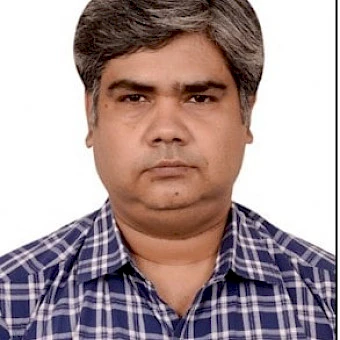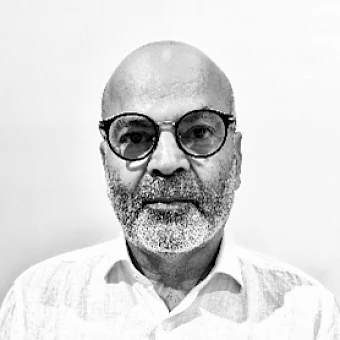Faculty
Aadya Kaktikar
Associate Professor and Head of DepartmentSchool of Humanities and Social Sciences
Department of Art, Media and Performance
Aakash Sinha
Assistant Professor of PracticeSchool of Engineering
Department of Electrical Engineering
Aakriti Mandhwani
Associate ProfessorSchool of Humanities and Social Sciences
Department of English
Ajay Dandekar
ProfessorSchool of Humanities and Social Sciences
Department of History and Archaeology
Amritha Sruthi Radhakrishnan
Assistant ProfessorSchool of Humanities and Social Sciences
Department of Art, Media and Performance
Anirban Ghosh
Assistant Professor, Academic WritingSchool of Humanities and Social Sciences
Department of English
Anubhuti Maurya
Associate ProfessorSchool of Humanities and Social Sciences
Department of History and Archaeology
Anupam Roy
Assistant ProfessorSchool of Humanities and Social Sciences
Department of Art, Media and Performance
Arka Roy Chaudhuri
Associate ProfessorSchool of Humanities and Social Sciences
Department of Economics
Arnab Ganguly
Associate ProfessorSchool of Engineering
Department of Computer Science and Engineering
Arvind Shatdal
Ph.D., Indian Institute of Management, Ahmedabad
Organization Behavior and Human Resource Management
Ashokankur Datta
Associate ProfessorSchool of Humanities and Social Sciences
Department of Economics
Ashwin Ramanathan
Associate ProfessorSchool of Humanities and Social Sciences
Department of Art, Media and Performance
Atanu Rakshit
Associate Professor Ph.D., Virginia Tech.Strategy Management, Entrepreneurship and International Business
Atul Bhalla
ProfessorSchool of Humanities and Social Sciences
Department of Art, Media and Performance
Atul Mishra
Associate Professor and Head of DepartmentSchool of Humanities and Social Sciences
Department of International Relations and Governance Studies
Avinash Samvedi
Ph.D., Indian Institute of Technology Delhi (IITD)
Decision Sciences, Operations Management, and Information Systems
Bahar Dutt
Associate ProfessorSchool of Humanities and Social Sciences
Department of Art, Media and Performance
Bhargabi Das
Assistant ProfessorSchool of Humanities and Social Sciences Department of Rural Management
M.A. in Rural Management
Carlos Frederico Pereira da Silva Gama
Assistant ProfessorDepartment of International Relations and Governance Studies
Chen Tang
Mandarin Language TeacherSchool of Humanities and Social Sciences
Department of International Relations and Governance Studies
Chinmaya Lal Thakur
Assistant ProfessorSchool of Humanities and Social Sciences
Department of English
Claire Wintle
Honorary ProfessorSchool of Humanities and Social Sciences
Department of History and Archaeology
Colin Jamora
Senior Professor and Chair of Office for Applied Research & Industry Alliances (ARIA)School of Natural Sciences
Department of Life Sciences
Darryl W Reed
Distinguished ProfessorSchool of Humanities and Social Sciences
Department of Economics
Deepak Gautam
Assistant ProfessorSchool of Management & Entrepreneurship
Decision Sciences, Operations Management, and Information Systems
Deepak Kumar Sinha
Ph.D., Massachusetts Institute of Technology, USA
Strategy Management, Entrepreneurship and International Business
Deepti Mulgund
Assistant ProfessorSchool of Humanities and Social Sciences
Department of Art, Media and Performance
Diviani Chaudhuri
Assistant ProfessorSchool of Humanities and Social Sciences
Department of English
Divya Kannan
Assistant ProfessorSchool of Humanities and Social Sciences
Department of History and Archaeology
Divya Shrivastava
Associate Professor and HeadSchool of Engineering
Department of Mechanical Engineering
Elena Lazos Chavero
Former Visiting FellowDepartment of International Relations and Governance Studies
Ganeshthangaraj Ponniah
Associate ProfessorSchool of Engineering
Department of Mechanical Engineering
Gopal Das Singhal
Associate Professor and Associate HeadSchool of Engineering
Department of Civil Engineering
Gyan Vikash
Associate Professor and Head of DepartmentSchool of Engineering
Department of Civil Engineering
Harish Naraindas
Honorary ProfessorHemanth Kadambi
Associate Professor and HeadSchool of Humanities and Social Sciences
Department of History and Archaeology
Himanshu Kulkarni
Professor of Practice (Rural Management)School of Humanities and Social Sciences
M.A. in Rural Management
Iman Mitra
Assistant ProfessorSchool of Humanities and Social Sciences
Department of History and Archaeology
Iram Ghufran
Associate ProfessorSchool of Humanities and Social Sciences
Department of Art, Media and Performance
Jabin Thomas Jacob
Associate ProfessorSchool of Humanities and Social Sciences
Department of International Relations and Governance Studies
Jaideep Ghosh
Ph.D., University of Pittsburgh, Pennsylvania, U.S.A.
Decision Sciences, Operations Management, and Information Systems
Kamlesh Ganesh Pawar
India Alliance Early Career FellowSchool of Natural Sciences
Department of Life Sciences
Kaushik Chaudhuri
Ph.D., Reitaku University, Japan
Organization Behavior and Human Resource Management
Kaustubh Mani Sengupta
Assistant ProfessorSchool of Humanities and Social Sciences
Department of History and Archaeology
Lynn Meskell
Honorary ProfessorSchool of Humanities and Social Sciences
Department of History and Archaeology
Manish Dave
Senior Director and Professor of PracticeMarco Madella
Visiting ProfessorSchool of Humanities and Social Sciences
Department of History and Archaeology
Medha
Assistant ProfessorSchool of Humanities and Social Sciences
Department of International Relations and Governance Studies
Meera Visvanathan
Associate ProfessorSchool of Humanities and Social Sciences
Department of History and Archaeology
Mihir Shah
Distinguished ProfessorChairperson, M.A. Rural Management
School of Humanities and Social Sciences
M.A. in Rural Management
Monica Juneja
Distinguished ProfessorSchool of Humanities and Social Sciences
Department of Art, Media and Performance
Nitin Kumar
Assistant ProfessorSchool of Engineering
Department of Computer Science and Engineering
P. C. Saidalavi
Assistant ProfessorSchool of Humanities and Social Sciences
Department of Sociology
Partha Chatterjee
Dean of AcademicsSchool of Humanities and Social Sciences
Department of Economics
Partha Sarathi Roy
FPM Institute of Rural Management Anand
Strategy Management, Entrepreneurship and International Business
Pooja Singh
Assistant ProfessorSchool of Engineering
Department of Computer Science and Engineering
Pradeep Mehra
PGDM Indian Institute of Management Calcutta
Strategy Management, Entrepreneurship and International Business
Pradeep Yammiyavar
Distinguished Professor & AdvisorSchool of Humanities and Social Sciences
Department of Design
Prasun Kumar Roy
Professor and Head of DepartmentSchool of Natural Sciences
Department of Life Sciences
Priyanka Pandit
Assistant Professor Department of International Relations and Governance StudiesDepartment of International Relations and Governance Studies
Punarjit Roychowdhury
Associate Professor and Head of the Department of EconomicsSchool of Humanities and Social Sciences
Department of Economics
Raghupathy Madhavan Balakrishnan
Ph.D., Indian Institute of Technology Madras
Finance, Accounting and Control
Rahul Chakraborty
Assistant Professor Ph.D., Jawaharlal Nehru University (JNU), New DelhiEconomics and Public Policy
Rajat Kathuria
Dean, School of Humanities and Social Sciences Professor, EconomicsDepartment of Economics
Rajeswari S. Raina
ProfessorSchool of Humanities and Social Sciences
Department of International Relations and Governance Studies
Rajib Mall
Senior Professor and Head of the DepartmentDepartment of Computer Science and Engineering
Rashmi Aggarwal
Ph.D., Panjab University, Chandigarh
Strategy Management, Entrepreneurship and International Business
Ravi Nandan Singh
Associate ProfessorSchool of Humanities and Social Sciences
Department of Sociology
Sandali Thakur
Associate Professor, Rural ManagementSchool of Humanities and Social Sciences
M.A. in Rural Management
Sanjay Srivastava
Honorary ProfessorSchool of Humanities and Social Sciences
Department of Sociology
Satyam Mukherjee
Ph.D., Indian Institute of Technology Madras
Decision Sciences, Operations Management, and Information Systems
Saurabh Janardan Shigwan
Assistant ProfessorSchool of Engineering
Department of Computer Science and Engineering
Shampa Bhattacharjee
Associate ProfessorSchool of Humanities and Social Sciences
Department of Economics
Shankar Kumar Ghosh
Assistant ProfessorSchool of Engineering
Department of Computer Science and Engineering
Sheel Sindhu Manohar
Assistant ProfessorSchool of Engineering
Department of Computer Science and Engineering
Shih Ting Lin
Mandarin Language TeacherDepartment of International Relations and Governance Studies
Shraman Banerjee
Assistant ProfessorSchool of Humanities and Social Sciences
Department of Economics
Siddharth Mallavarapu
ProfessorSchool of Humanities and Social Sciences
Department of International Relations and Governance Studies
Simanti Bandyopadhyay
Ph.D., Jawaharlal Nehru University (JNU), New Delhi
Economics and Public Policy
Snehasis Mukherjee
Associate ProfessorSchool of Engineering
Department of Computer Science and Engineering
Sonia Khetarpaul
Associate ProfessorSchool of Engineering
Department of Computer Science and Engineering
Sreedeep Bhattacharya
Associate ProfessorSchool of Humanities and Social Sciences
Department of Sociology
Sri Krishna Jayadev Magani
Associate ProfessorSchool of Natural Sciences
Department of Life Sciences
Sruthi Muraleedharan
Assistant ProfessorSchool of Humanities and Social Sciences
Department of International Relations and Governance Studies
Subhashim Goswami
Associate Professor and HeadSchool of Humanities and Social Sciences
Department of Sociology
Suchismita Tarafdar
Associate ProfessorSchool of Humanities and Social Sciences
Department of Economics
Sudeshna Guha
ProfessorSchool of Humanities and Social Sciences
Department of History and Archaeology
Sujana Kabiraj
Associate professorSchool of Management and Entrepreneurship
Economics and Public Policy
Suneet Tuli
Professor, Electrical Engineering, Dean, Research & Partnerships Dean, School of EngineeringDepartment of Electrical Engineering
Surya Sarathi Majumdar
FPM Indian Institute of Management Calcutta
Decision Sciences, Operations Management, and Information Systems
Swaminath Bharadwaj Gourishankar
Assistant ProfessorSchool of Engineering
Department of Chemical Engineering
Sweta Mishra
Assistant ProfessorSchool of Engineering
Department of Computer Science and Engineering
Taduri Srinivasa Siva Rama Krishna Rao
Distinguished ProfessorHead of Department of Mathematics
School of Natural Sciences
Department of Mathematics
Teja Varma Pusapati
Associate ProfessorSchool of Humanities and Social Sciences
Department of English
Trishita Ray Barman
Associate ProfessorSchool of Humanities and Social Sciences
Department of Economics
Urmila Shripad Bhirdikar
Associate ProfessorSchool of Humanities and Social Sciences
Department of Sociology
Vasundhara Bhojvaid
Assistant ProfessorSchool of Humanities and Social Sciences
Department of Sociology
Venkatnarayan Hariharan
Associate ProfessorSchool of Engineering
Department of Electrical Engineering
Vijay Kumar Chakka
Professor and Head of DepartmentSchool of Engineering
Department of Electrical Engineering
Vijayasankaran Perumpilavil
Professor of Practice (Rural Management)School of Humanities and Social Sciences
M.A. in Rural Management
Vijayta Fulzele
Ph.D., Indian Institute of Technology Delhi
Decision Sciences, Operations Management, and Information Systems
Vinayak Das Gupta
Associate ProfessorSchool of Humanities and Social Sciences
Department of English
Vinita Krishna
Ph.D., Dept. of Mgmt. Studies, Indian Institute of Technology Delhi
General Management
Vipul Kumar Singh
Associate ProfessorSchool of Management & Entrepreneurship
Finance, Accounting and Control
Visakh Vaikuntanathan
Assistant ProfessorSchool of Engineering
Department of Mechanical Engineering
Vivek Khanna
FPM, Indian Institute of Management Indore
Organization Behavior and Human Resource Management
Vivek Malhotra
Distinguished Professor (Visiting)School of Natural Sciences
Department of Life Sciences
Yogeshwar Bharat
Assistant ProfessorSchool of Humanities And Social Sciences
Department of Economics

Join Us Today!
We are extremely fortunate to have faculty from some of the top institutions in India and the world. Our faculty selection process is extensive and on-going. We offer our faculty several facilities: a highly accomplished academic community; top-notch mentoring from our senior distinguished faculty; small class size and stable workloads; seed grants; a competitive compensation package of salary and benefits – including campus housing with extensive facilities on our 286-acre green campus, and more. We hire on a continuous basis – please write to the respective deans and heads of departments to explore opportunities in your field of interest.
